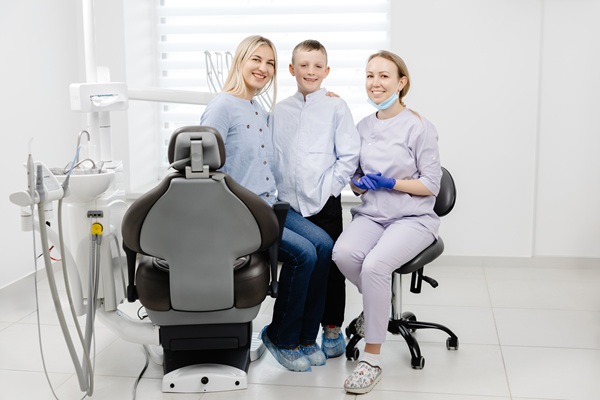5 Signs and Symptoms of Occlusal Disease

Occlusal disease is a topic that is just starting to gain some traction in the dental and medical community. This is a disease that can be hard to understand.
In order to understand it more clearly, we will first take the definition of occlusion from the American Dental Association: "Any contact between biting or chewing surfaces of maxillary (upper) and mandibular (lower) teeth." This means that occlusal disease is a set of symptoms or problems that happen during or because of biting, chewing or contact between the upper and lower teeth.
Symptoms of occlusal disease
1. Facial pain
When affected by occlusal disease, your teeth are a different shape than what they should be for good chewing technique. So without thinking, you might be chewing in an unnatural or irregular way. This would cause the muscles of your face to strain and cause general muscle pain in your face. You might also experience joint pain in your jaw.
2. Headaches
This is a symptom that many people do not mention to their dentist. However, it is involved in almost every kind of dental disease and you should mention headaches at every visit. Headaches are often caused by tired muscles or grinding that can be associated with occlusal diseases.
3. Tired facial muscles
Occlusal disease causes a restructuring of the teeth and it can become more difficult to chew your food effectively. This means that you might be chewing for longer and longer, which will make your jaw muscles tired.
4. Tooth sensitivity
Constant wear-and-tear can shave off the enamel of your teeth and expose the inner pulp to the elements. This will make your teeth much more sensitive to temperature and the elements.
5. Vibrations (Fremitus)
A fremitus is usually caused by occlusal trauma, or when two occlusive teeth are smashing together harder than they should be. Your dentist can touch the side of your mouth and feel these vibrations.
Causes of occlusal disease
To further help understand how occlusal disease can occur, the following are some of the causes of this condition:
Dental attrition
Attrition is wear resulting from tooth-on-tooth contact. You chew a lot in your lifetime, and eventually, the enamel starts to wear down. This is a normal part of the aging process and is also a common issue for people with bruxism (teeth grinding).
Abrasion
This is the loss of enamel from using your teeth for things other than eating. For example, using your teeth to remove bottle tops, hold pins or to bite your nails.
Toothpaste abrasion
This is a version of abrasion that involves brushing too hard. Try to use a gentle brushing motion on your teeth to avoid damaging them.
Erosion
Erosion is when your teeth wear away from acidic substances that are not caused by bacteria. This usually includes carbonated drinks and acidic fruit juices.
Are you experiencing some of these symptoms?
Talk to your dentist as soon as possible. You may need some cosmetic dental or orthodontic work to fix the damage and return your bite to normal. If you have any questions, our professional office staff is happy to speak with you.
Request an appointment here: https://whiteflintfamilydental.com or call White Flint Family Dental at (301) 273-1085 for an appointment in our Rockville office.
Check out what others are saying about our services on Yelp: Read our Yelp reviews.
Recent Posts
Visiting a new dental office can be a daunting experience, especially for those unsure of what to expect during their first appointment. Whether you seek general, cosmetic, or pediatric dental care, understanding what happens during a first visit can help reduce anxiety and ensure a smooth experience. A dental office visit typically includes an initial…
A general dentist is often the first to inform parents that a teenage patient needs braces. As an orthodontic option, Invisalign® for teens can produce results in just a few months with minimal discomfort. This process can work to straighten teeth that are out of line, crooked, or twisted, and there may be no need…
Invisalign® for teens can offer adolescents a more comfortable and more discreet option for straightening their teeth. For years, braces were one of the only options for effectively treating a crooked smile. Even though Invisalign® has been providing an alternative for decades, some people may not be familiar with who it is for and how…
The term "root canal" often causes anxiety in patients. This fear is largely due to misconceptions surrounding this dental procedure. However, a root canal is an effective treatment that can relieve pain, save a natural tooth, and prevent further complications. By understanding the most common myths about root canals, patients can approach this treatment with…


